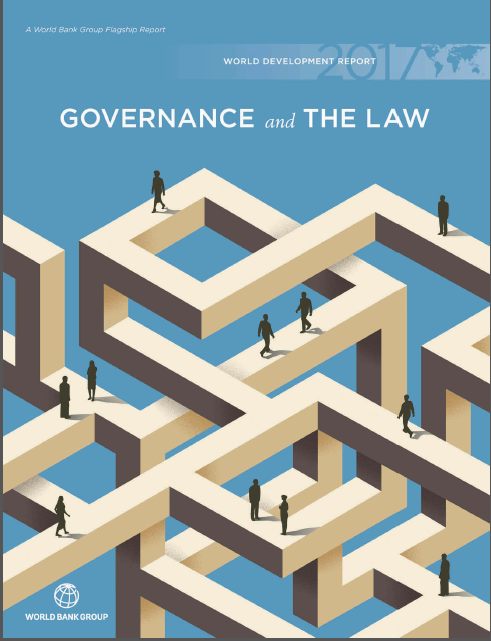
World development report : Governance and Law
Publication Year: 2017 / Sources: World Bank GroupWhy are carefully designed, sensible policies too often not adopted or implemented? When they are, why do they often fail to generate development outcomes such as security, growth, and equity? And why do some bad policies endure? This World Development Report 2017: Governance and the Law addresses these fundamental questions, which are at the heart of development. Policy making and policy implementation do not occur in a vacuum. Rather, they take place in complex political and social settings, in which individuals and groups with unequal power interact within changing rules as they pursue conflicting interests. The process of these interactions is what this Report calls governance, and the space in which these interactions take place, the policy arena. The capacity of actors to commit and their willingness to cooperate and coordinate to achieve socially desirable goals are what matter for effectiveness.
Download: English | Khmer
Full Report: Cambodia’s Mineral Exploration Licensing Process: Governance Risk Assessment
Publication Year: 2017 / Sources: Transparency International CambodiaThis Governance Risk Assessment was conducted as part of Transparency International’s Mining for Sustainable Development (M4SD) Programme. The aim of this study is to identify the systemic, regulatory and institutional vulnerabilities to malpractice in awarding mining and mining-related licences, permits and contracts. The study will also assess the specific governance risks created by these vulnerabilities and present recommendations. This report presents the main findings from the research and the results of the risk assessment.
Download: English | Khmer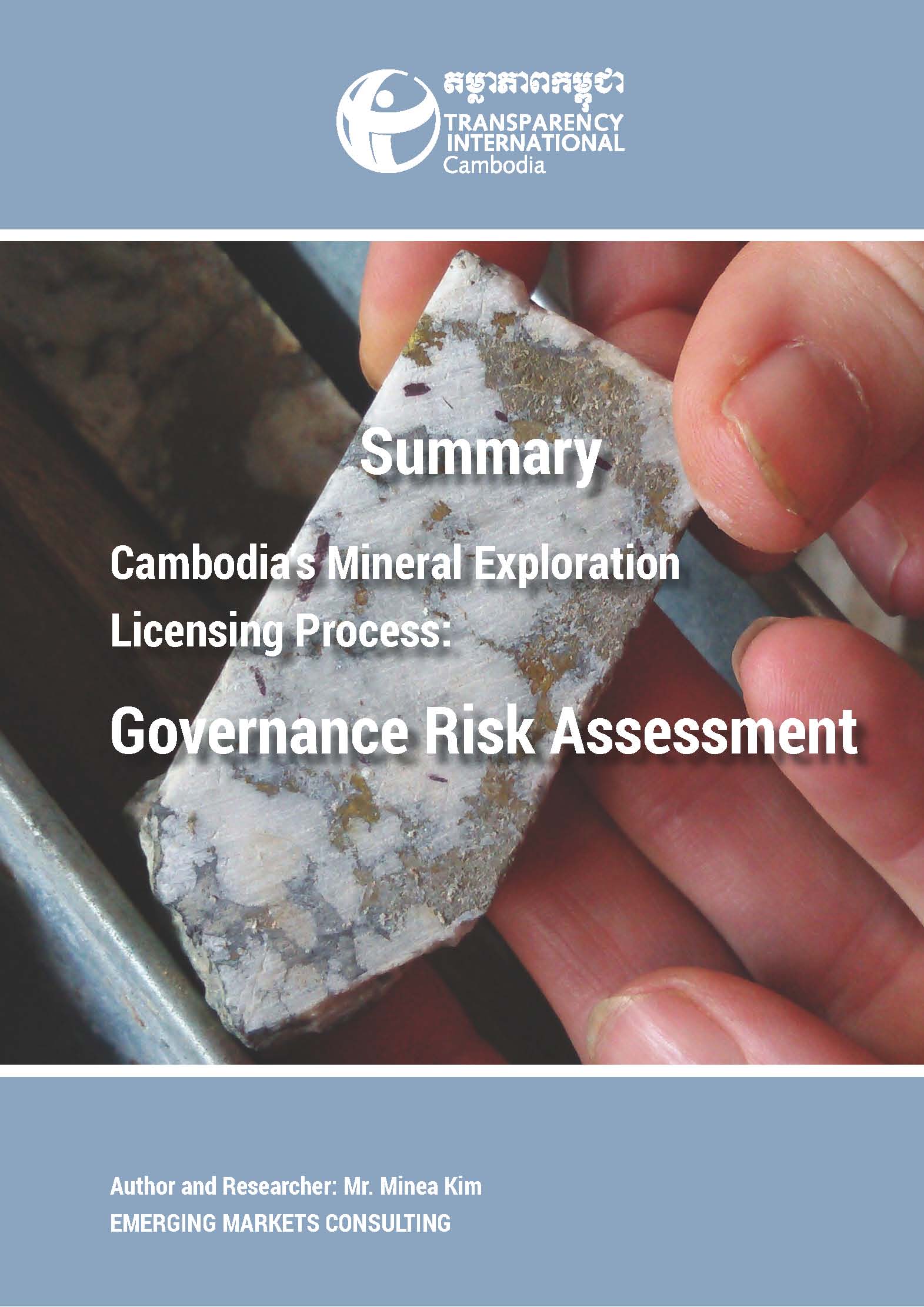
Summary: Cambodia’s Mineral Exploration Licensing Process: Governance Risk Assessment
Publication Year: 2017 / Sources: Transparency International CambodiaThis Governance Risk Assessment was conducted as part of Transparency International’s Mining for Sustainable Development (M4SD) Programme. The aim of this study is to identify the systemic, regulatory and institutional vulnerabilities to malpractice in awarding mining and mining-related licences, permits and contracts. The study will also assess the specific governance risks created by these vulnerabilities and present recommendations. This report presents the main findings from the research and the results of the risk assessment.

Tourism Sector Assessment, Strategy, and Road Map for Cambodia, Lao PDR, Myanmar, and Viet Nam (2016-2018)
Publication Year: 2017 / Sources: ASIAN Development BankThis sector assessment, strategy, and road map (ASR) documents strategic investment priorities of the Asian Development Bank (ADB) and the governments of Cambodia, the Lao People’s Democratic Republic (Lao PDR), Myanmar, and Viet Nam in the tourism sector.1 It highlights sector performance, priority development constraints, government plans and strategies, past ADB support and experience, other development partner support, and ADB’s future tourism support strategy for Cambodia, the Lao PDR, Myanmar, and Viet Nam (CLMV). The ASR is linked to and informs ADB country partnership strategies for CLMV. It will be updated as strategic developments and program changes are needed and will help to provide sector background information for investment and technical assistance operations.
Download: English | Khmer
Human Development Report 2016
Publication Year: 2017 / Sources: UNDPThe 2016 Human Development Report is the latest in the series of global Human Development Reports published
by the United Nations Development Programme (UNDP) since 1990 as independent, analytically and empirically
grounded discussions of major development issues, trends and policies.
Additional resources related to the 2016 Human Development Report can be found online at http://hdr.undp.org,
including digital versions of the Report and translations of the overview in more than 20 languages, an interactive
web version of the Report, a set of background papers and think pieces commissioned for the Report, interactive
maps and databases of human development indicators, full explanations of the sources and methodologies used in
the Report’s composite indices, country profiles and other background materials as well as previous global, regional
and national Human Development Reports. The 2016 Report and the best of Human Development Report Office
content, including publications, data, HDI rankings and related information can also be accessed on Apple iOS and
Android smartphones via a new and easy to use mobile app.

Mobile Phones and Internet Use in Cambodia, 2016
Publication Year: 2016 / Sources: Kimchhoy Phong, Lihol Srou, and Javier Solá (Open Institute, Development Innovations, The Asia Foundation, USAID)This study examines Cambodian phone users’ knowledge, attitudes and practices in relation to Khmer-language reading, writing, and search habits, and identifies the factors motivating (and discouraging) their use of Khmer script. It also attempts to identify changes and trends in the way Khmer-enabled phones are used, including as a means of accessing the Internet — in particular Facebook.
Download: English | Khmer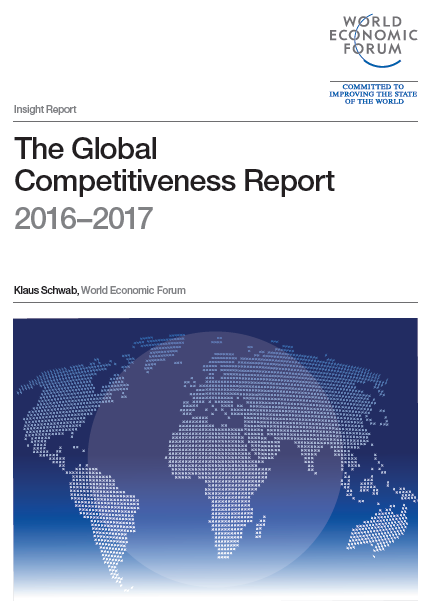
The Global Competitiveness Report 2016-2017
Publication Year: 2016 / Sources: Klaus Schwab, World Economic ForumCambodia ranks 89th, up one position from last year. Among Asian nations, it is the one that has posted the largest GCI score improvement—from 3.5 to 4.0—since 2007. Despite the positive trend, the challenges are many and significant. Cambodia ranks no better than 50th in any of the 12 pillars of the Index; in half of them it sits beyond the 100th mark. Of particular concern is its mediocre performance in three of the four areas that constitute the basic drivers of competitiveness: institutions (104th, up seven), infrastructure (106th, down five), and health and primary education (103rd, down 16). Moreover, Cambodia ranks 124th in higher education and training, its poorest performance in any pillar. It is estimated that secondary education enrollment is around 50 percent. With a median age of 23.8, Cambodia is home to one of the youngest populations in Asia. Ensuring access to quality of education for all should therefore be a policy priority.
Download: English | Khmer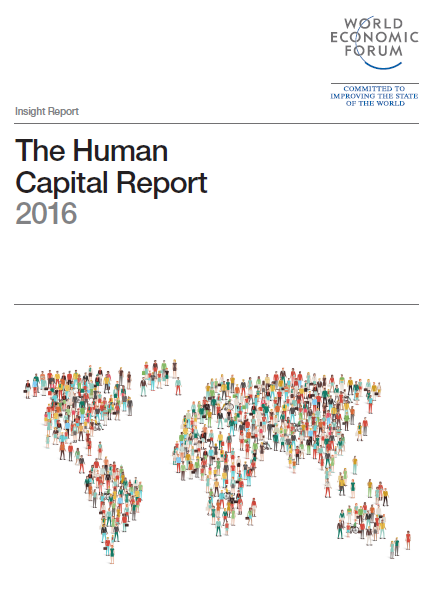
The Human Capital Report 2016
Publication Year: 2016 / Sources: World Economic ForumThe Human Capital Report aims to combine public international statistics, qualitative perception data and big data metrics to provide a comprehensive picture of the situation today as well as the opportunities for the future. The Human Capital Index quantifies how 130 countries are developing and deploying their human capital, and tracks progress over time. It takes a life-course approach to human capital, evaluating the levels of education, skills and employment available to people in five distinct age groups. In addition to the Index, the Report also explores skills in-depth through a unique partnership with LinkedIn and the emerging shape of the labour market on digital platforms, using data from Care.com, Didi Chuxing, Uber and Upwork.
Download: English | Khmer
Rule of Law Index 2015
Publication Year: 2015 / Sources: World Justice Project (WJP)The Rule of Law Index 2015 was prepared by The World Justice Project (WJP)’s research team. This research has measured on 8 factors: constraints on government powers, absence of corruption, open government, fundamental rights, order and security, regulatory enforcement, civil justice, and criminal justice. A ninth factor, informal justice, is measured but not included in aggregated scores and rankings. These factors are intended to reflect how people experience rule of law in everyday life. This WJP Rule of Law Index 2015 are derived from more than more than 100,000 household and expert surveys in 102 countries and jurisdictions. The report showed that Cambodia ranked 99 out of 102 countries and dead last in the East Asia and Pacific region.
Download: English | Khmer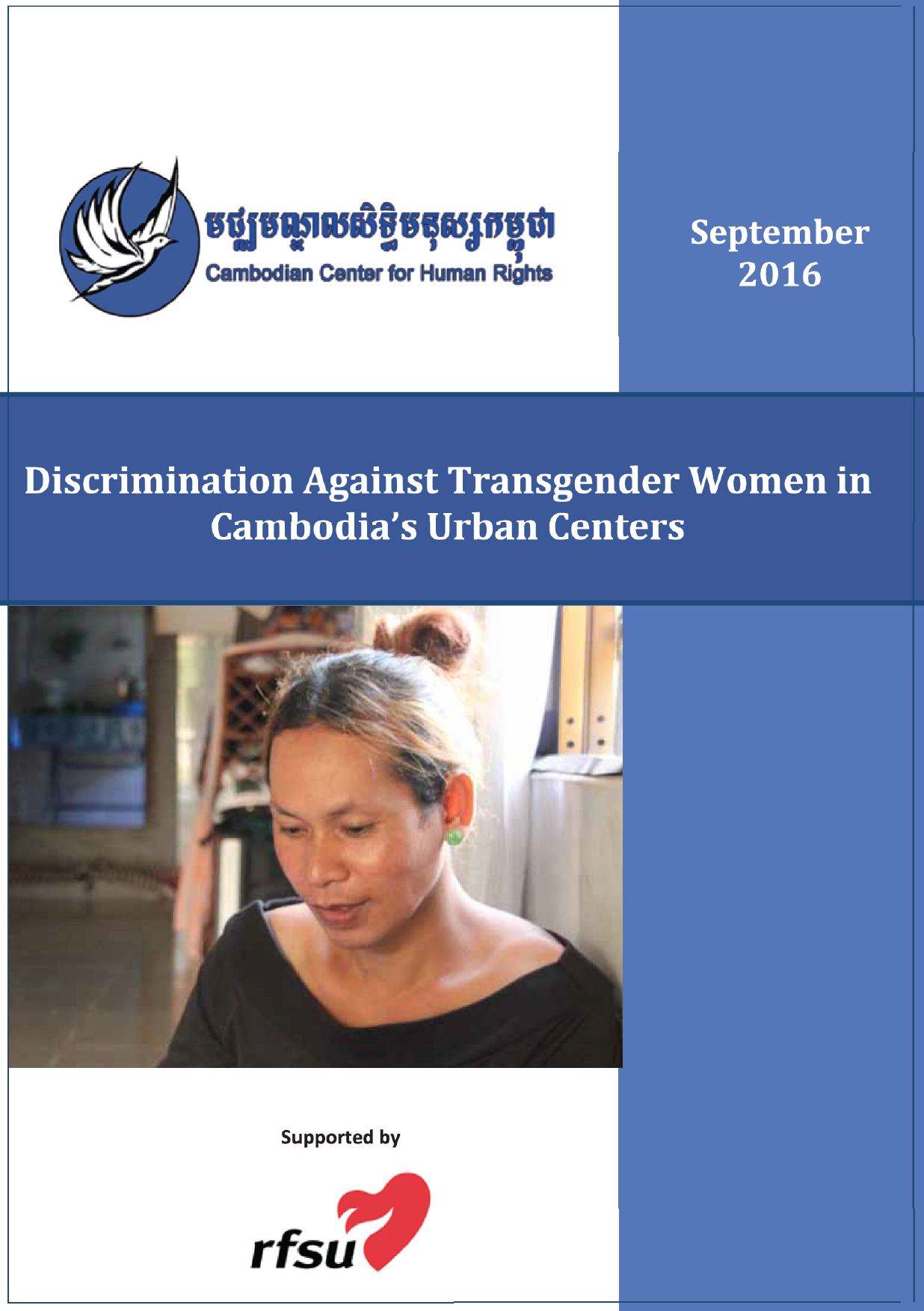
Discrimination Against Transgender Women in Cambodia’s Urban Centers
Publication Year: Sep 2016 / Sources: Cambodian Center for Human Rights (CCHR)This research report documents human rights issues faced by transgender women in Cambodia’s Urban centers, and recommends actions to secure their rights to equality, dignity, health and security.
Download: English | Khmer